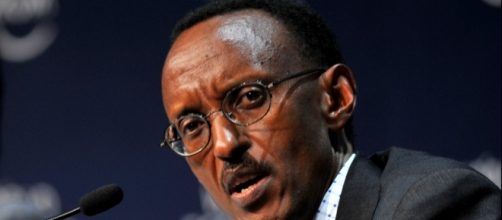Rwandan President Paul Kagame won a third term Friday night with 98 percent of the vote, according to the electoral commission.
Kagame's reelection was not surprising, many Rwandans said the outcome was predestined months before the Election. The ruling party is known for suppressing opposition and unfavorable media. Opponents Philippe Mpayimana and Frank Habineza said their supporters faced intimidation and would not turn out for campaign rallies, BBC reported. Other opponents were disqualified in July for not gathering enough signatures to make the ballot.
Paul Kagame
Kagame has been the de facto leader of Rwanda since the 1994 genocide. He formally assumed the presidency in 2000 and was elected by the people in 2003 and 2007 with more than 90 percent of the vote.
In 2015, Rwandans overwhelmingly voted in favor of a constitutional referendum shortening presidential terms from seven years to five years, maintaining two term limits. Term limits were lifted for the transition period, allowing Kagame to continue serving if reelected. Kagame now begins his third seven-year term and is eligible to serve two five-year terms beginning in 2024 if Rwandans choose to reelect him. The referendum could allow Kagame to rule until 2034.
Supporters praise Kagame for economic growth and national stability, post-genocide.
Rwanda's economy is growing at seven percent annually, BBC reported, making it one of the fast-growing African economies.
Kagame led the rebel Tutsi movement to end the Hutu-sponsored genocide. Critics say Kagame and his party exploit the memory and fear of genocide to remain in power, suppress opposition, and limit press.
African Elections
The neighboring country, Burundi, plummeted into civil unrest and instability following President Pierre Nkurunziza's election to a third term in 2015. Nkurunziza's decision to run for a third term resulted in the opposition party boycotting the election.
President Joseph Kabila of the Democratic Republic of Congo extended his term by delaying constitutional measures.
Kabila's second term ended on Dec. 20, 2016. The Democratic Republic of the Congo's constitution does not allow more than two terms, The New York Times reported, and Kabila has been unsuccessful in his attempts to change the constitution to justify his term extension.
Ugandan President Yoweri Museveni is in his fifth term and has served since 1986 when he promised to replace the former dictatorship with democracy. Opponents tried to use Museveni's age to disqualify his candidacy in February's election. The age limit for presidential candidates in Uganda is 75-years-old, BBC reported. Museveni's opponents said he was 76 at the time of candidacy, the government said he was 71, and Museveni admits that he does not know his exact date of birth.
Kenyans head to the polls on Tuesday where President Uhuru Kenyatta is eligible for his second term.


